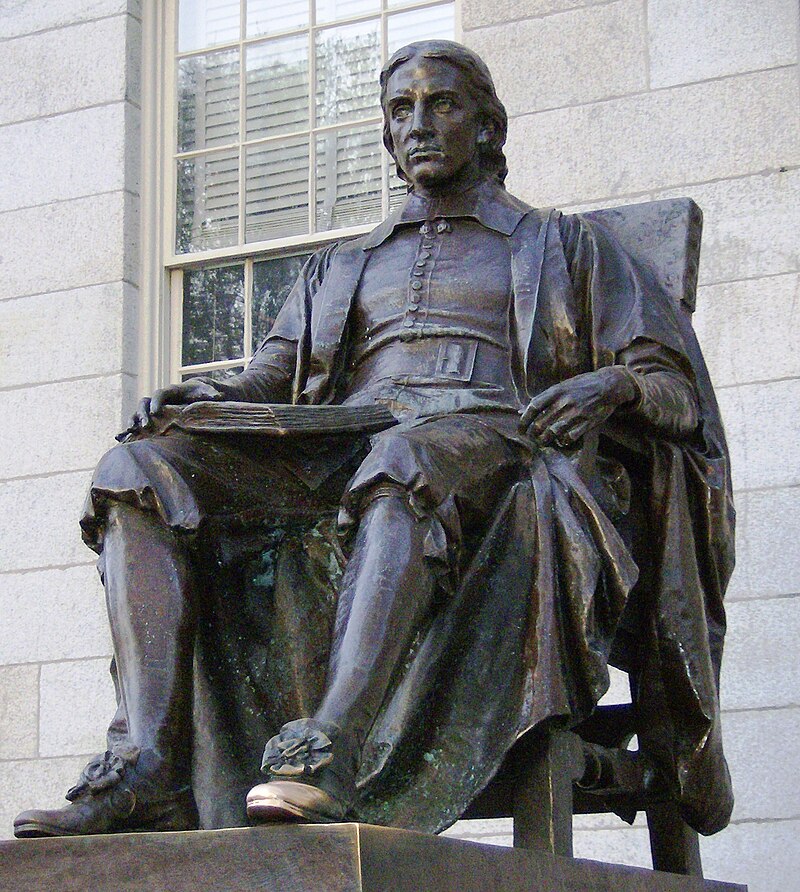
John Harvard, born in 1607 in London, was a testament to the transformative power of books. Harvard was a clergyman who emigrated to the Massachusetts Bay Colony in 1637. Although his life was tragically short—he died of tuberculosis in 1638 at the age of 30—his legacy has endured for centuries, largely due to his valuable bequest of books and funds to a nascent educational institution.
Upon his death, John Harvard left half of his estate, including his library of 400 volumes, to the college that would later bear his name: Harvard College. This donation was significant for several reasons:
- Educational Foundation: Harvard’s collection of books formed the core of the college’s library, providing essential resources for the education of future generations. In a time when educational materials were scarce, this library became a crucial asset for the fledgling institution.
- Intellectual Legacy: The books Harvard bequeathed included works on theology, philosophy, and the arts, reflecting the broad spectrum of knowledge he valued. This collection helped to establish a robust intellectual foundation for the college, influencing its academic programs and scholarly pursuits.
- Symbol of Commitment: Harvard’s donation underscored the importance of education and the role of books in fostering intellectual growth. It served as a powerful symbol of commitment to learning and knowledge, inspiring others to support the college’s mission.
Books as Cultural and Educational Treasures
In the early 17th century, books were more than just sources of information; they were cultural and educational treasures. They facilitated the spread of Renaissance humanism, which emphasized the value of classical learning and the study of humanities. Books allowed scholars to engage with the works of ancient philosophers, scientists, and theologians, thus fueling the intellectual movements of the time.
For settlers in the New World, books were particularly valuable. They connected the colonies to the broader intellectual currents of Europe and provided the knowledge necessary to build and govern a new society. In this context, John Harvard’s donation was not merely a gift of material wealth but a vital contribution to the intellectual and cultural development of the American colonies.
The Enduring Legacy
John Harvard’s bequest of books and funds set a precedent for the importance of libraries and the accumulation of knowledge in educational institutions. Harvard University, which grew from these humble beginnings, has become a global leader in education and research, with a library system that now holds millions of volumes.
The value of books in the early 17th century, exemplified by John Harvard’s legacy, highlights the profound impact that access to knowledge can have on individuals and societies. Books were not only prized possessions but also catalysts for intellectual growth and societal progress. The reverence for books in this era laid the groundwork for the flourishing of education and the pursuit of knowledge that continues to this day.
The early 17th century was a time when books were among the most valuable assets one could own. John Harvard’s generous donation of his library to an emerging college underscores the immense value placed on books and their role in shaping the intellectual and educational landscape of the time. His legacy continues to remind us of the enduring power of books to transform lives and societies.


